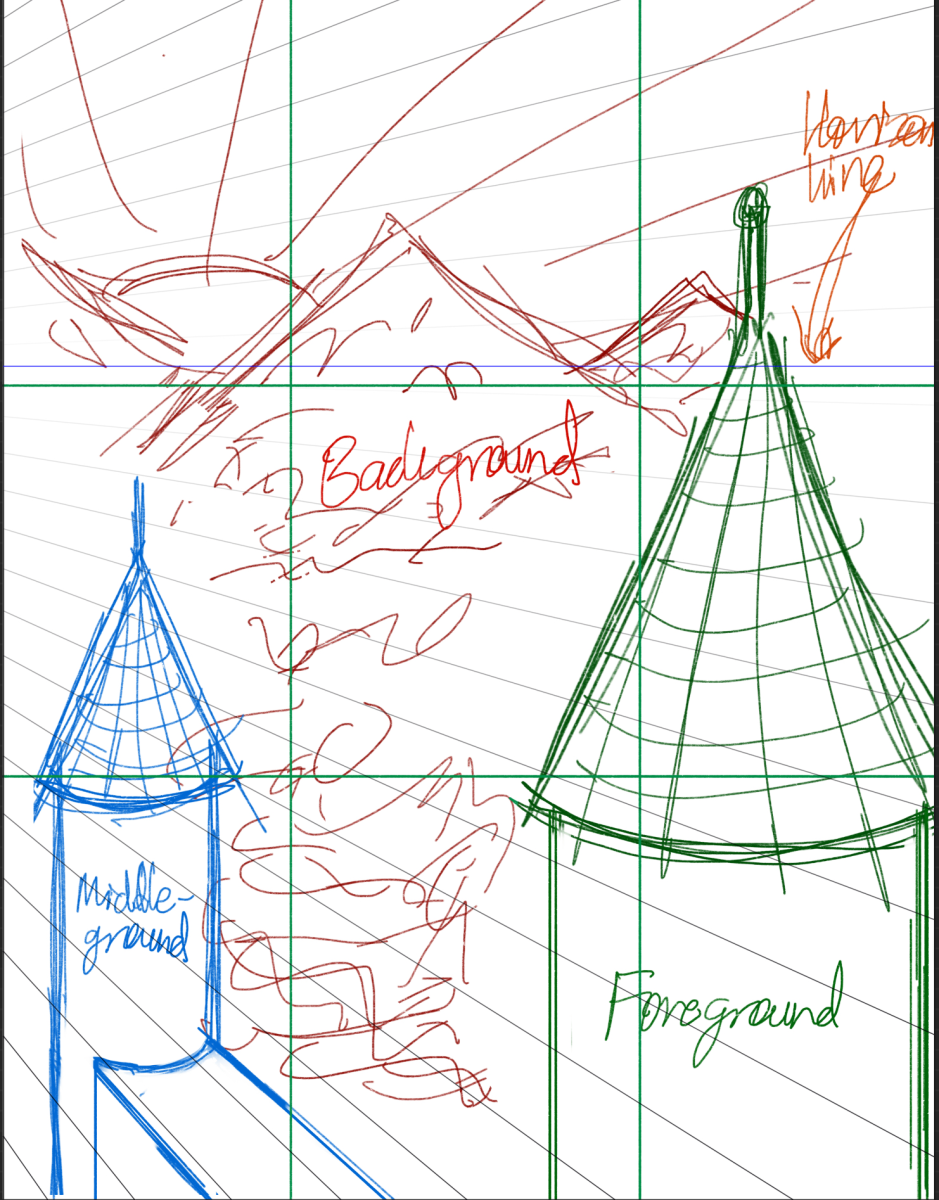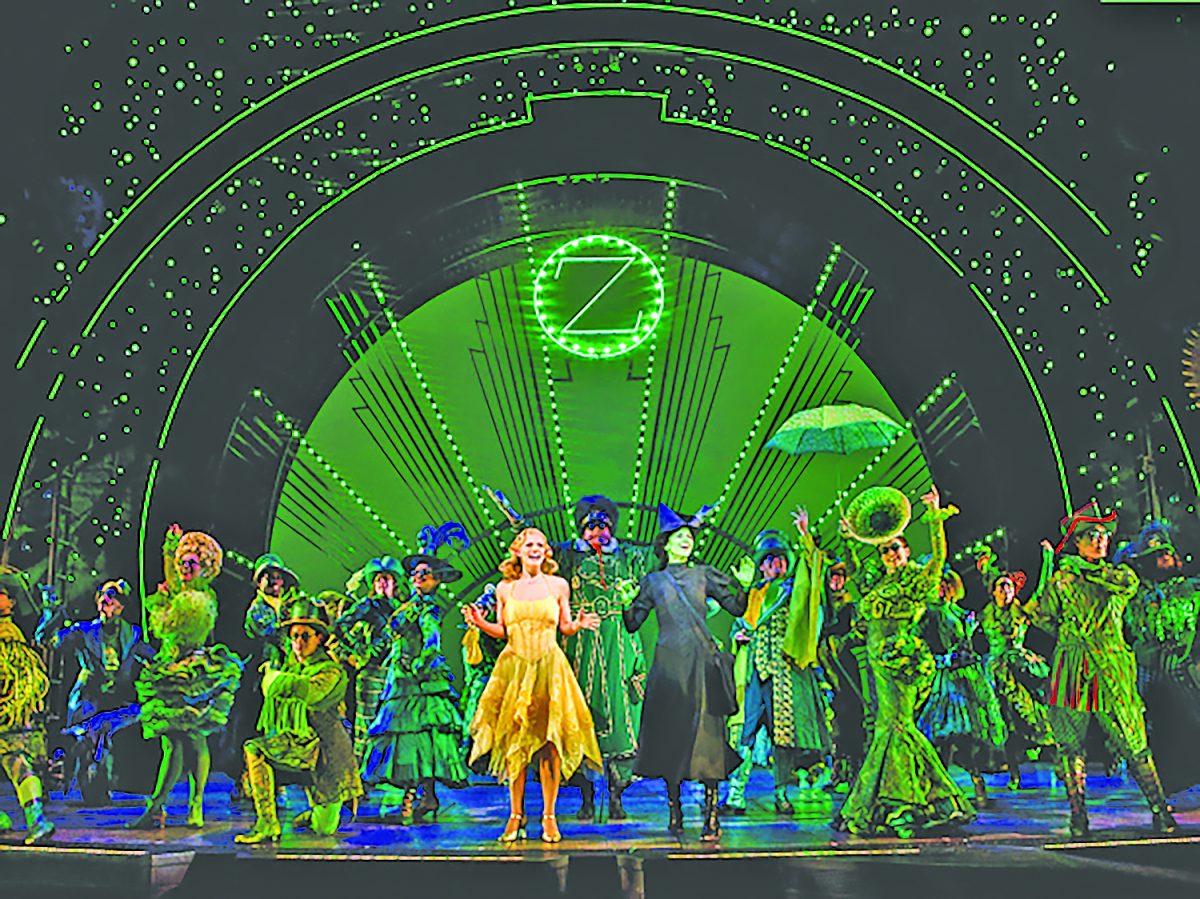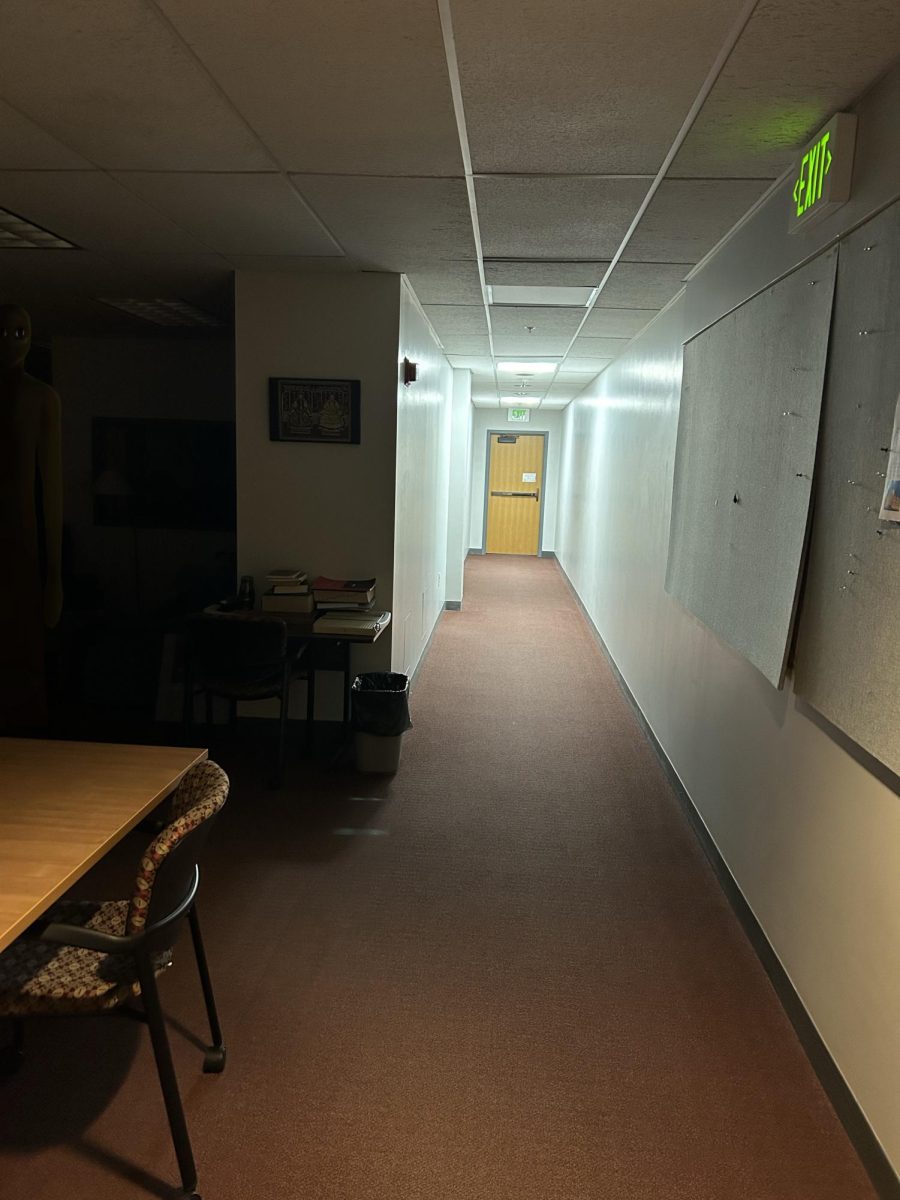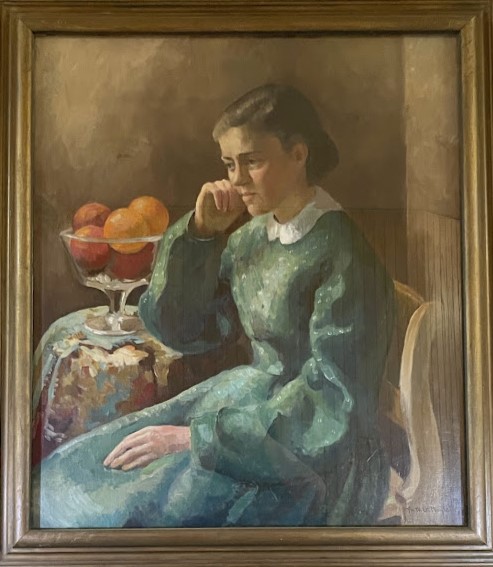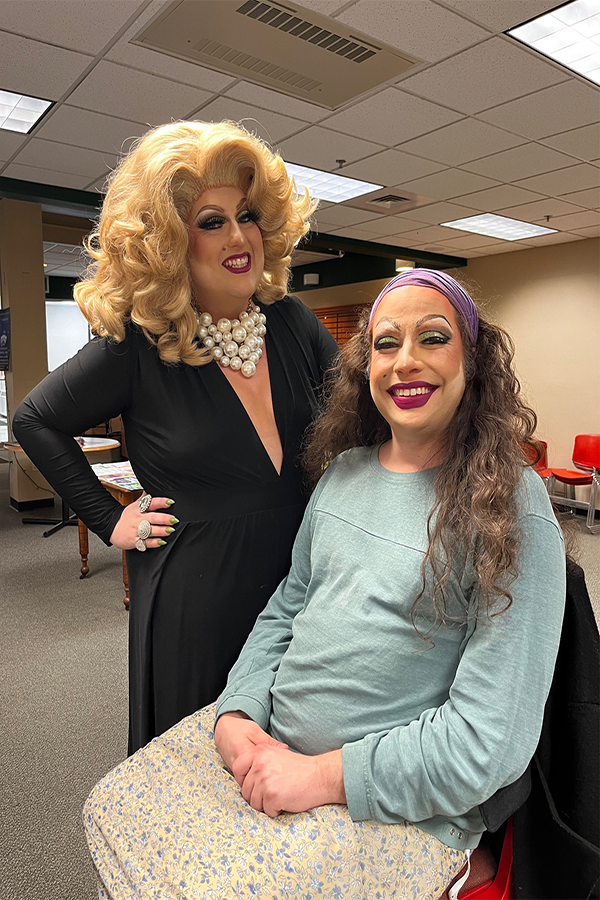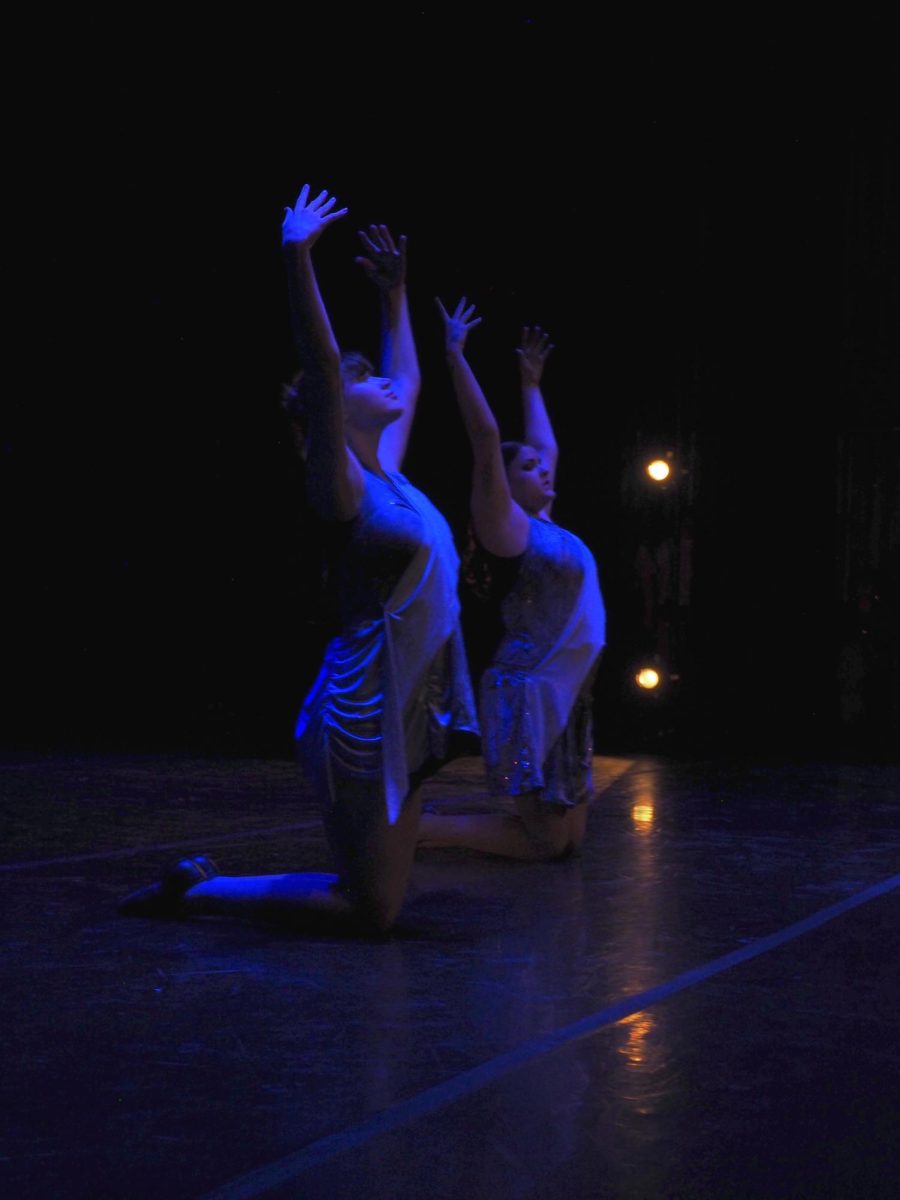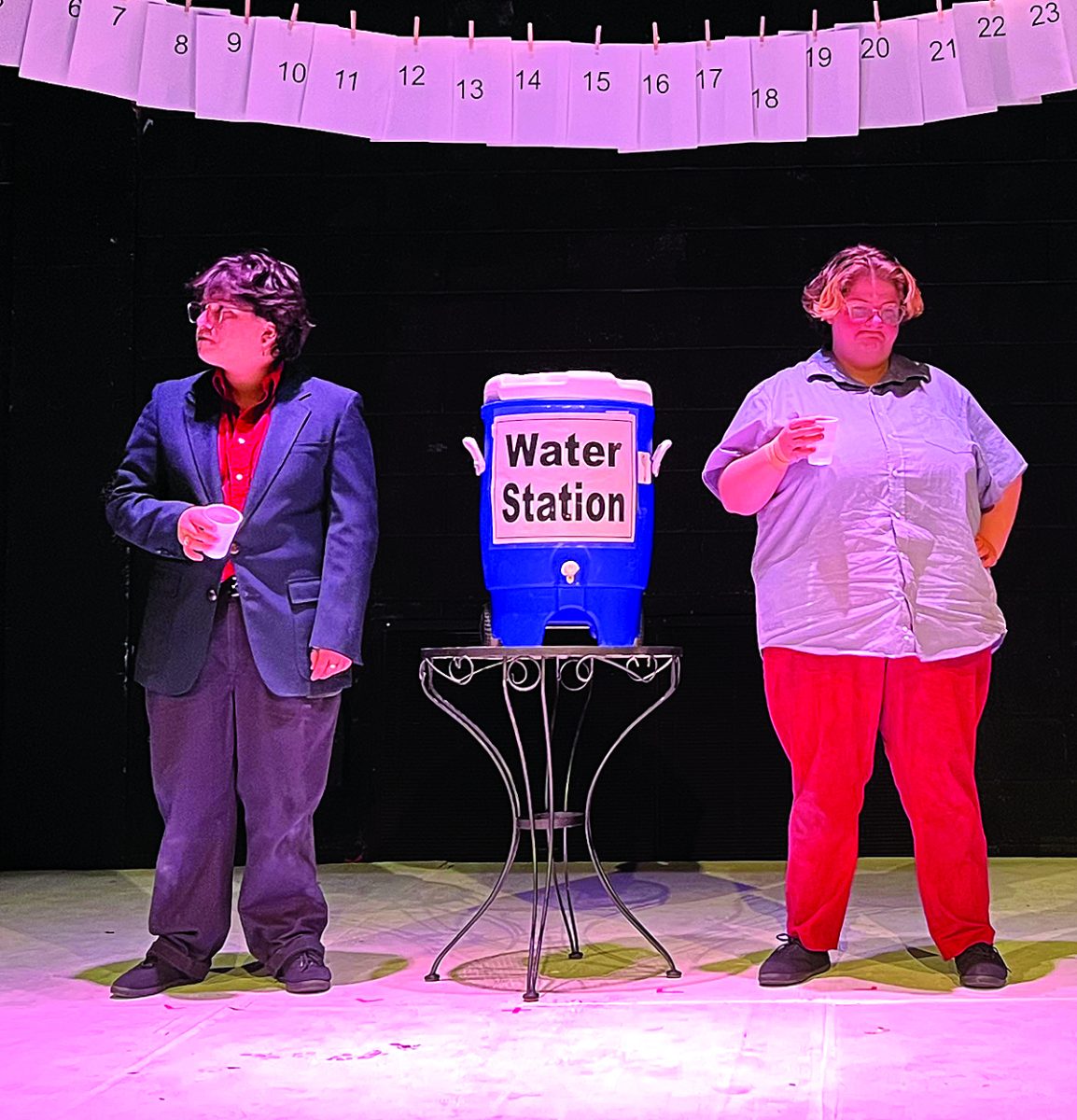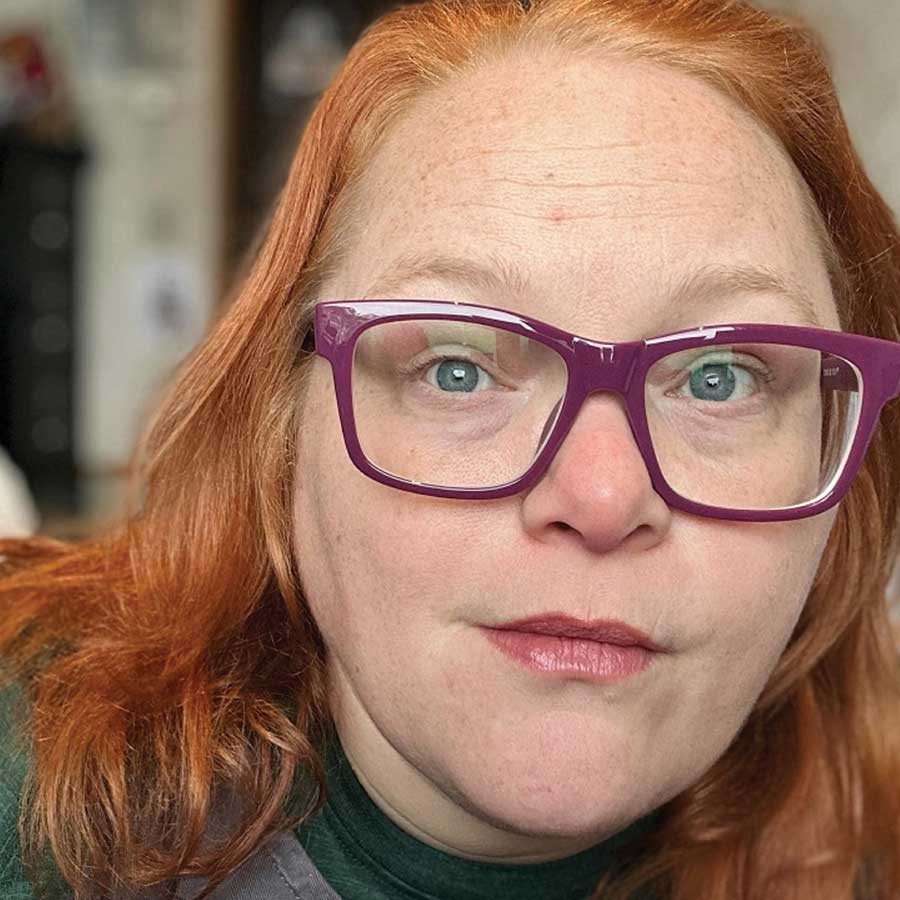The cast of “Two Rooms” delivered a powerful performance Saturday, March 17, bringing members of the audience to tears at the end. This senior project was directed by Taryn Glasser. This project, over a year in the making, was worth every late night spent rehearsing.
Glasser fell in love with this play last year when she heard a monologue from it at a regional theater festival. This small play with minimal tech is a fabulous example of how a play doesn’t have to be fancy to be good. The four characters in this play are also interesting, rich people.
According to Glasser, “This is a show that makes you think about not only the characters’ lives, but your own as well.” She wanted the audience to get a chance to think about the show and what it means to each person as an individual. She said, “I’m a believer in not keeping theater just inside a theater building. Theater is everywhere and can go everywhere, and I invite everyone to spread the great art of theater around.”
“Two Rooms,” written in 1988, is the story of a couple, Michael and Lainie Wells. Michael, played by Dan Schurman, is an educator in Beirut, who was kidnapped and held prisoner by terrorists. Back in the United States, Lainie (Alijah Gauthier) “cleansed” Michael’s office, repainted the walls, and stripped the room of furniture so that she has a space that mimics what she imagines he is experiencing in captivity.
Michael’s cell and Lainie’s self-created prison are the two rooms of the title. In this office, devoid of anything but a small thin mat, Lainie can feel more connected to her husband. Michael and Lainie talk to each other although they can’t even hear or see each other. Their bond continues to be strong, even when they are physically apart.
Gauthier, a freshman majoring in Theatre and Drama will be a regular player on the Dibden stage over the next few years. She delivered her performance with clear diction and emotion. Her costumes were simple, but her feelings were complex.
Shurman is also a senior majoring in Theater and Musical Theater. He is performing in three productions this year, and has been seen in many projects throughout his JSC career. His character was blindfolded and handcuffed during most of the play, and that could not have been easy. Good job!
Throughout the play, Lainie also communicates with Ellen Van Oss, a State Department employee, played by senior Claire Demarais. Van Oss brings Lainie information (albeit not much) about her husband, but also seems to have a genuine affection for Lainie as she always tries to make sure Lainie is not completely isolating herself.
Lainie is being pursued by Walker Harris (Thomas Bartlau), a newspaper reporter hungry for the story of this woman and eager to expose the unproductiveness of the government in trying to bring her husband back. When Lainie agrees to talk to the press Van Oss is furious, and insists that this could put her husband in greater jeopardy in his prison.
In one of her last productions here at JSC, Demarais delivers another one of the top-notch performances we have come to expect from her. She will be leaving Johnson with a Theater and Technical Theater degree in May.
Demarais delivers a powerful message about hope in the play and in her senior project note. “I see hope constantly around me. For actors, hope is a very important part of our every day lives. You hope for an audition. You hope for a callback. You hope for a part. You hope to get paid. You hope this won’t be your last show.” Lucky for audiences at JSC, we still have another production to look forward to with Demarais, the upcoming spring musical, “Spring Awakening.”
Thomas Bartlau, a Tech Theater and Theater major, has been on Dibden’s stage six times, and although Walker Harris was no Steve Heidebrecht from “August: Osage County,” Bartlau delivered a performance that was consistent with his strong acting skills. We will find him next in the spring musical.
Senior Kate-Lynn Pal was on costumes and props for this production, and even though the set was sparse by design, the small touches like the folding chair and tea set were appropriate. Lighting by Michael Brokowski added to the feeling of time passage, as well as the shift between different characters using the room.
Liz Glasser and Shannon Edmonds did a fine job on projections, especially during the two slide shows. Stage Manager Jonathan Howard was able to keep things running smoothly, and had a successful experience.
In this drama, Blessing explores multiple themes that are just as current today as they were in the late 80’s. What does it mean to be an American at war on foreign soil? What is the American legacy we leave? Not only for the military and the government, but also for people who just happen to be in the wrong place at the wrong time or be of the wrong nationality in the wrong place. Blessing also explores the role of the media and the government in releasing information to the public while withholding information from military adversaries.
As Demarais said in an earlier interview, “ ‘Two Rooms’ brings up a lot of ethical issues regarding how the government deals with hostage situations as well as how the press deals with these situations.”
In the final moments of the play, Michael Wells makes his appearance on stage without blindfold or handcuffs, and the tears begin streaming. We realize even before he tells us that he has been killed. This is the result of a mistake the U.S. government made, according to what we hear from Van Oss.
Lainie talks to him one last time on the mat in his office, imagining that he is right there with her, his head in her lap. Is he really there? Can death actually tear them apart? After all, as Lainie explains, no matter what the torture they have gone through, and the selfishness of the government and media, their love still remains a fortress, much like what Lainie describes of her beloved African Hornbill.
This play was by no means an escapist play as some are. This play was designed to make one think and think hard. The themes that are consistent in this play are important even just to spark discussions about the government, the media, and hope.



